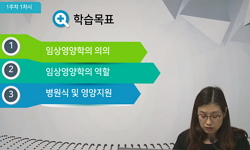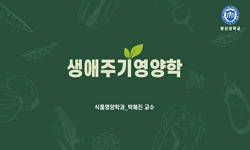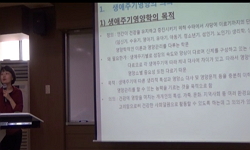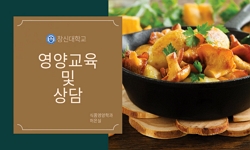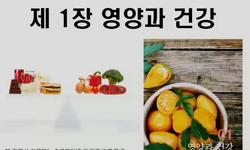신장이식은 전 세계적으로 가장 흔히 시행되는 고형장기이식술이다. 면역억제제의 발달로 신장이식 환자의 생존율은 점차 향상되어 왔으며, 이로 인해 비면역학적인 요소 특히 영양과 관련...
http://chineseinput.net/에서 pinyin(병음)방식으로 중국어를 변환할 수 있습니다.
변환된 중국어를 복사하여 사용하시면 됩니다.
- 中文 을 입력하시려면 zhongwen을 입력하시고 space를누르시면됩니다.
- 北京 을 입력하시려면 beijing을 입력하시고 space를 누르시면 됩니다.

한국식을 먹는 신장이식 수혜자들의 식이분석(단일기관 연구) = Dietary Analysis of Kidney Transplant Patients Who Eat Korean Foods: Single Center Study
한글로보기https://www.riss.kr/link?id=A104761865
- 저자
- 발행기관
- 학술지명
- 권호사항
-
발행연도
2015
-
작성언어
Korean
- 주제어
-
등재정보
KCI등재후보
-
자료형태
학술저널
- 발행기관 URL
-
수록면
68-74(7쪽)
-
KCI 피인용횟수
1
- 제공처
-
0
상세조회 -
0
다운로드
부가정보
국문 초록 (Abstract)
신장이식은 전 세계적으로 가장 흔히 시행되는 고형장기이식술이다. 면역억제제의 발달로 신장이식 환자의 생존율은 점차 향상되어 왔으며, 이로 인해 비면역학적인 요소 특히 영양과 관련된 문제가 신장이식 후의 유병률과 사망률에 큰 영향을 미치는 요소가 되었다. 만성신부전 환자는 신장이식을 통해 요독증과 관련된 대사장애와 투석의 부작용을 교정할 수 있다. 하지만 신장이식 후에도 기존의 만성신부전으로 인한 일부 대사장애가 지속될 수 있으며, 또한 신장이식 그 자체와 면역억제제의 복용은 장단기적인 건강문제와 이식신의 생존율에 지대한 영향을 미칠 수 있는 새로운 대사장애들을 유발할 수 있다. 따라서 영양조정은 비만, 고혈압, 당뇨병, 심혈관계 질환과 같은 신장이식과 관련된 흔한 건강 문제들을 예방하고 치료하는데 있어 중요한 역할을 한다.
투석 관련 영양문제에 대해서는 이전의 많은 연구가 있어왔다. 하지만 신장이식 후의 영양문제에 대해서는 상대적으로 적은 관심을 받아왔으며, 더욱이 한국식을 섭취하는 신장이식환자들의 영양상태에 대한 연구는 매우 부족한 실정이다.
이 연구는 한국식을 섭취하는 신장이식 환자들의 영양상태를 파악함으로써 적극적인 영양조정을 통해 신장이식 후 발생할 수 있는 대사관련 합병증 예방 및 치료, 나아가 이식신장 생존율 향상에 기여하고자 한다.
다국어 초록 (Multilingual Abstract)
Background: Although nutritional problems associated with dialysis are well described, nutritional problems after renal transplantation have received little attention. Nutrition interventions play an important role in prevention and management of comm...
Background: Although nutritional problems associated with dialysis are well described, nutritional problems after renal transplantation have received little attention. Nutrition interventions play an important role in prevention and management of common health problems associated with renal transplantation such as obesity, hypertension, diabetes, and cardiovascular disease.
Methods: Sixty-four kidney transplant recipients who received post-transplant management at our hospital replied to the questionnaire. The questionnaire included 102 questions on the amount and types of Korean foods that they consumed last week.
Nutritional elements of diet in renal transplant patients who consume Korean food were analyzed on the basis of the survey.
Results: The mean energy and protein of daily intake were 2,088±1,016 kcal and 75.5±38.2 g. Patients’ diets were generally sufficient, but characterized by deficiencies in vitamin B2, vitamin D, niacin, calcium, and magnesium intake.
Conclusions: Dietary advice is required with regard to intake of some nutritional elements for kidney transplant recipients who consume Korean foods. Their main nutritional problem is obesity after transplantation. Attention should be paid to prevention of nutritional imbalance.
참고문헌 (Reference)
1 Hur KY, "Risk factors associated with the onset and progression of posttransplantation diabetes in renal allograft recipients" 30 : 609-615, 2007
2 Montori VM, "Posttransplantation diabetes: a systematic review of the literature" 25 : 583-592, 2002
3 Moore LW, "Patterns of early weight change after renal transplantation" 6 : 21-25, 1996
4 Teplan V, "Nutritional consequences of renal transplantation" 19 : 95-100, 2009
5 Strejc J, "Nutrition guidelines after kidney transplantation" 10 : 161-167, 2000
6 Bellinghieri G, "Metabolic syndrome after kidney transplantation" 19 : 105-110, 2009
7 Dumler F, "Metabolic and nutritional complications of renal transplantation" 17 : 97-102, 2007
8 Fouque D, "Low protein diets for chronic renal failure in non diabetic adults" (2) : CD001892-, 2001
9 Bernardi A, "Long-term protein intake control in kidney transplant recipients: effect in kidney graft function and in nutritional status" 41 (41): S146-S152, 2003
10 Kent PS, "Issues of obesity in kidney transplantation" 17 : 107-113, 2007
1 Hur KY, "Risk factors associated with the onset and progression of posttransplantation diabetes in renal allograft recipients" 30 : 609-615, 2007
2 Montori VM, "Posttransplantation diabetes: a systematic review of the literature" 25 : 583-592, 2002
3 Moore LW, "Patterns of early weight change after renal transplantation" 6 : 21-25, 1996
4 Teplan V, "Nutritional consequences of renal transplantation" 19 : 95-100, 2009
5 Strejc J, "Nutrition guidelines after kidney transplantation" 10 : 161-167, 2000
6 Bellinghieri G, "Metabolic syndrome after kidney transplantation" 19 : 105-110, 2009
7 Dumler F, "Metabolic and nutritional complications of renal transplantation" 17 : 97-102, 2007
8 Fouque D, "Low protein diets for chronic renal failure in non diabetic adults" (2) : CD001892-, 2001
9 Bernardi A, "Long-term protein intake control in kidney transplant recipients: effect in kidney graft function and in nutritional status" 41 (41): S146-S152, 2003
10 Kent PS, "Issues of obesity in kidney transplantation" 17 : 107-113, 2007
11 Chan M, "Evidence-based guidelines for the nutritional management of adult kidney transplant recipients" 21 : 47-51, 2011
12 Teplan V, "Effect of keto acids on asymmetric dimethylarginine, muscle, and fat tissue in chronic kidney disease and after kidney transplantation" 19 (19): S27-S29, 2009
13 Cupisti A, "Effect of a soy protein diet on serum lipids of renal transplant patients" 14 : 31-35, 2004
14 Kahra T, "Dietary intakes differ between renal transplant recipients living in patient hotels versus home" 14 : 101-108, 2004
15 Heaf J, "Dietary habits and nutritional status of renal transplant patients" 14 : 20-25, 2004
16 Kasiske BL, "Diabetes mellitus after kidney transplantation in the United States" 3 : 178-185, 2003
17 Friedman AN, "Demographics and trends in overweight and obesity in patients at time of kidney transplantation" 41 : 480-487, 2003
동일학술지(권/호) 다른 논문
-
- 대한이식학회
- 이유호
- 2015
- KCI등재후보
-
- 대한이식학회
- 이혜영
- 2015
- KCI등재후보
-
- 대한이식학회
- 천승욱
- 2015
- KCI등재후보
분석정보
인용정보 인용지수 설명보기
학술지 이력
| 연월일 | 이력구분 | 이력상세 | 등재구분 |
|---|---|---|---|
| 2022 | 평가예정 | 재인증평가 신청대상 (재인증) | |
| 2019-06-30 | 학술지명변경 | 한글명 : 대한이식학회지 -> Korean Journal of Transplantation외국어명 : The Journal of the Korean Society for Transplantation -> Korean Journal of Transplantation |  |
| 2019-01-01 | 평가 | 등재학술지 선정 (계속평가) |  |
| 2018-01-01 | 평가 | 등재후보학술지 유지 (계속평가) |  |
| 2017-01-01 | 평가 | 등재후보학술지 유지 (계속평가) |  |
| 2015-01-01 | 평가 | 등재후보학술지 선정 (신규평가) |  |
학술지 인용정보
| 기준연도 | WOS-KCI 통합IF(2년) | KCIF(2년) | KCIF(3년) |
|---|---|---|---|
| 2016 | 0 | 0 | 0 |
| KCIF(4년) | KCIF(5년) | 중심성지수(3년) | 즉시성지수 |
| 0 | 0 | 0 | 0 |




 KCI
KCI